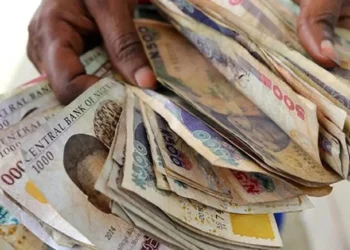Foreign Portfolio Investments (FPIs) in the Nigerian stock market have witnessed a significant surge, increasing by 180.95% in the first ten months of 2024. FPI inflows rose to N344.30 billion between January and October, compared to N122.55 billion recorded during the same period in 2023.
Investment analysts attribute this impressive growth to the Central Bank of Nigeria’s (CBN) monetary policies, which have boosted interest earnings on portfolio investments throughout the year.
Outflows Also on the Rise
Despite the increased inflows, foreign investment outflows also recorded a substantial growth of 136.95%, rising to N400.04 billion from N168.83 billion in 2023. Year-to-date, total foreign transactions have climbed by 155.5%, reaching N744.34 billion, up from N291.38 billion during the same period last year.
Domestic Investors Dominate Transactions
Data from the Nigerian Exchange Limited (NGX) reveal that domestic investors accounted for 83.35% of the total transaction value, with turnover hitting N3.727 trillion out of the N4.470 trillion recorded year-to-date. Retail investors contributed N1.91 trillion, while domestic institutional investors recorded N1.82 trillion.
On a monthly basis, transactions at the nation’s bourse increased marginally by 1.97% from N493.01 billion in September to N502.73 billion in October 2024. Compared to October 2023, when transactions were N220.94 billion, the total for October 2024 represents a significant increase of 127.54%.
Analysts React to Increased FPI
Victor Chiazor, an analyst at Fidelity Securities Limited, highlighted that the rise in FPI inflows reflects improved investor confidence spurred by Nigeria’s fiscal and monetary reforms. He noted that the CBN’s consistent interest rate hikes to curb inflation have positively influenced foreign investor sentiment.
Similarly, David Adonri, Vice Chairman at Highcap Securities, stated that increased FPI inflows positively impact the foreign exchange market by improving foreign reserves and stabilizing the exchange rate. “The inflows enhance supply in the FX market, leading to more stability,” he said.
Ambrose Omordion, Chief Operating Officer at InvestData Consulting, echoed this sentiment, attributing the improved outlook of foreign investors to the stabilizing naira and the CBN’s tough stance on inflation. He noted, “Higher interest rates may typically deter stock investments, but in this case, they signal a commitment to economic stability.”
Economic Implications
The rising FPI inflows indicate growing confidence in Nigeria’s stock market and broader economy. Analysts suggest that these investments are not only enhancing foreign reserves but also fostering optimism about Nigeria’s economic outlook.
As the CBN maintains its focus on inflation control and currency stabilization, the Nigerian stock market continues to attract foreign interest, bolstering its position as a key driver of economic growth.









